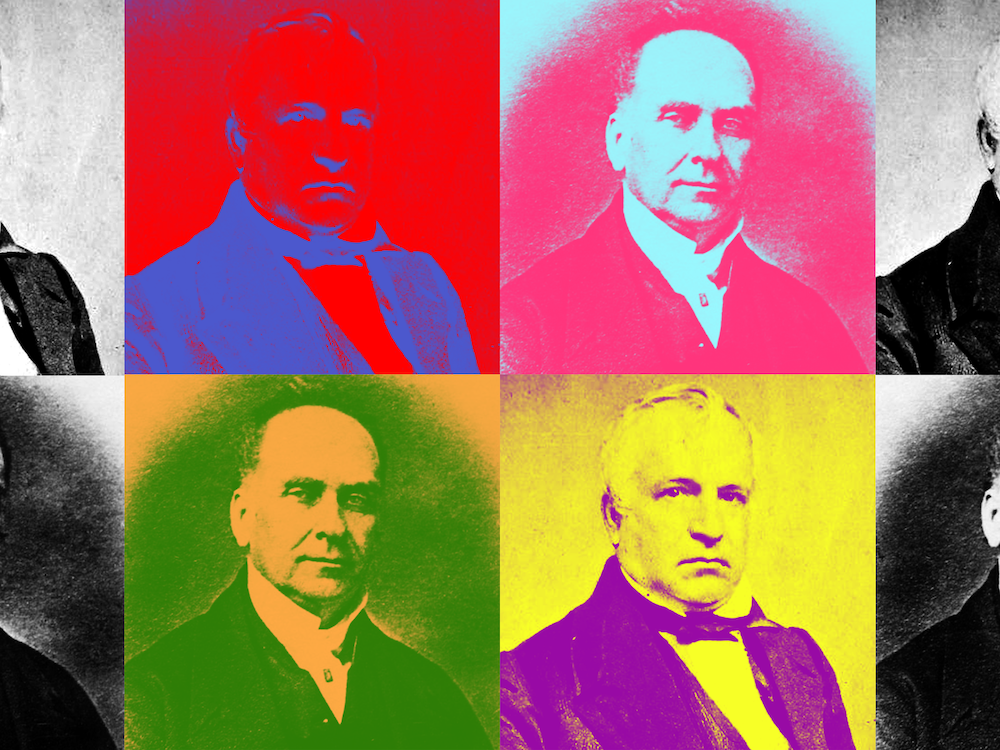[Editor’s note: The Tyee is proud to publish here the winner of the 2023 Dalton Camp Award, presented annually by FRIENDS (formerly FRIENDS of Canadian Broadcasting) for the best essay on the link between media and democracy. Read more about the prize in the sidebar to this story.]
In Canada, democracy is much deeper in the country’s social fabric than our historians or pundits are accustomed to recognize. It is in the marrow of our bones. Yes, we owe much of it to British parliamentary tradition, but we owe perhaps just as much to the democratic customs of First Nations. They were largely self-governing, and had their own political institutions, characterized by democratic practices including elected councils and separation of powers. In fact, the habitants, or early settlers in Canada from France, and later settlers wondered why they were not permitted the same voice in their own legislative assemblies.
But most of all we owe our democracy to a population that, from the very beginning, put a high value on literacy. The Six Nations founded Mohawk Institute in 1831, which began accepting female students in 1834. The Ojibwa Chief Kahkewaquonaby wrote spelling and grammar books in the Ojibwa language. Various churches came to believe that education could secure the loyalty of their flocks, and many kids were taught to read — with a regrettably hefty dollop of denominational theology on the side.
New Englanders and Pennsylvania Quakers, who were both numerous among Loyalist settlers, brought their educational and town council traditions. Black Canadians, arriving via the Underground Railroad, were keen on establishing schools. Scottish settlers brought their history of parish and burgh schools, teaching boys and girls of all classes.
Not everyone in pre-Confederation Canada shared in this ethos or benefited from it, but a majority seem to have valued literacy and education, and this clearly shaped our society and institutions.
Now, in a chaotic media landscape full of propaganda and manipulated by unscrupulous corporations and governments, it’s those deep-seated values that can help to protect and preserve our democracy.
In 1840, when Louis-Hippolyte Lafontaine, one of the founding fathers of “responsible government,” addressed the people of Terrebonne in Great Britain’s colony of Lower Canada, he proclaimed that they were not an ignorant peasantry trapped in a rigid class system, but a distinctly egalitarian frontier society, with only a trifling overlay of colonial administrators. “These values are stronger than laws; we know of nothing that will weaken them. There can exist in Canada no privileged caste above and beyond the mass of its inhabitants,” he declared in 1840’s Adresse aux électeurs du comté de Terrebonne.
Education, Lafontaine said, is the foremost gift that a government can confer on its people. He made it clear that this applied to every race and creed, and stated in the Adresse aux électeurs that “Canada is the home of our ancestors, our nation, just as it should be the adoptive nation of different populations who come from diverse places in the world…. Their children will become, as we are, Canadians.”
Laying the groundwork for democracy: education and a diverse media
Robert Baldwin, a politician in Upper Canada who held similar views, invited Lafontaine to run for the legislature in a riding north of Toronto. They were both men of letters, and Lafontaine answered by sending Baldwin a translation of François Fénelon’s The Adventures of Telemachus, an early classic of the Enlightenment which proposed limits on the power of the monarchy and education for the common people.
Together, Baldwin and Lafontaine laid the intellectual groundwork for democracy in Canada: a system of “responsible government” patterned on the British Parliament but without its class disparities and privileges, and uniting disparate people regardless of language, religion or ethnicity.
It so influenced and infused political discourse in British North America that it made possible the creation of Canada and its evolution into the multicultural democracy it is today.
How was it possible for this idea to spread in Canada? The year 1840 was a harsh time for the idea of democracy. The word itself had only negative connotations: mob rule, violence, the triumph of the ignorant unwashed over the virtuous and washed. Even during the American Revolution, none of its protagonists used the term in any positive sense. In Great Britain, democracy was synonymous with treason, and three leaders of the Chartist movement, which advocated universal male suffrage and the secret ballot, had just been sentenced to be hanged, drawn and quartered.
Three years earlier, popular rebellions demanding similar “radical” reforms were defeated by military forces in both Lower and Upper Canada, and their leaders fled into exile. Hundreds of Canadians, often just farmers or shopkeepers who had read a pamphlet or attended a local meeting, were rounded up on flimsy charges and shipped off to a prison colony in Australia.
What was it that allowed these very ordinary people to struggle so resolutely for abstract values and progressive institutions?
While life in Canada was harsh and lacked the comforts of Europe, its people were self-reliant, independent and well-educated by the standards of the time. Every farmhouse had its books, every town its library. The Scottish Enlightenment had found fertile soil in Canada, and its ideas fused with traditions of personal freedom formed in every home.
The battle of ideas took place in town meetings and newspapers. North America’s oldest surviving newspaper in continuous operation is the Quebec Chronicle-Telegraph, founded in 1764 as the Quebec Gazette, and published in both French and English. There were newspapers across British North America, each the voice of an opinionated publisher. They were read by rich and poor, and reached people of virtually every ethnicity.
Several Gaelic language publishers arose in the 1820s. In 1851, the Voice of the Fugitive became Canada’s first Black-owned newspaper, followed in 1853 by Mary Ann Shadd’s the Provincial Freeman. Petaubun began publishing in the Ojibwa language in 1861, and by 1873 there were two Métis newspapers.
Political progress in Canada was made by literate, educated common people pushing upward, not handed downward by an elite.
Anti-social media
In the 20th century, newspapers were swept up into cartels and consequently became more interested in protecting the interests of the wealthy. In Canada, two major players influenced press consolidation in the Commonwealth. Max Aitkin, later known as First Baron Beaverbrook (or more casually as Lord Beaverbrook), fuzzed the line between press and government by becoming Britain’s minister of information, in charge of war propaganda in Britain and the Dominions. By the late 1930s, Aitkin controlled 50 per cent of all the national and local newspapers in the U.K.
Then there was Roy Thompson, later known as First Baron Thompson of Fleet. He came to own more than 200 newspapers in Canada, the U.S. and U.K.
Meanwhile Australian-American businessman Rupert Murdoch grew up in the shadow of these two press barons and clearly sought to emulate and outdo them.
All the while, newspapers remained significant protectors of democratic institutions. They were partly displaced, in time, by television, but both newspapers and television made serious efforts to maintain professional standards of reporting and objectivity.
The best of the journalists in either medium were well-educated people. I remember watching Joe Schlesinger reporting for the CBC from Prague in November 1989, as the Communist regime was overthrown. Schlesinger spoke several European languages fluently, including Czech, and his knowledge of history was on a scholarly level. His reporting was intelligent, insightful and emotionally powerful. The television networks of the United States could not even come close. Canada was well served.
Now we are in the midst of another transformation of the media landscape. Newspapers barely exist anymore, shrivelled behind paywalls. Network television still functions, but its attempts to maintain gravitas are more embarrassing than inspiring. In the U.S., Fox News thumbs its nose at journalistic standards, while other networks struggle to obey their corporate masters while clinging to a nostalgic daydream of bygone journalism.
As media are prone to do, the aging ones are being displaced by newer ones, namely social media. And despite constant chatter about these media being “uncontrolled” and “a wild west,” the truth is quite the opposite: They are centralized under the control of a handful of billionaires and governments. The nastier players in the game are extremely skilled at using these media to deploy propaganda or disinformation.
None is better or more thorough at it than the regimes of dictators such as Vladimir Putin in Russia and Xi Jinping in China, which have modernized the older forms of agitprop into sophisticated tools to create malaise, confusion and chaos. Putin’s agitprop machine finances and promotes neo-Nazi movements around the world, including in Canada, but convinces millions that Russia’s invasion of Ukraine is a crusade against evil Nazis.
Modern propaganda does not try to convert people to a coherent ideology or make them believe that there is a utopia behind the walls of some foreign dictatorship. Instead, it makes people enraged, confused and depressed, and conclude that no truths can be known.
Both massive state resources and massive private fortunes can jam the internet with the content that they choose. Far from being an “open marketplace of ideas,” social media can easily be captured and manipulated by those who know how.
Whatever technology is involved, it will always be words and images, fundamentally no different from those that Baldwin and Lafontaine produced, or that inspired them when they read The Adventures of Telemachus.
The audience informs the message
What determines the outcome is not the specific structure of the medium, but the education of the people receiving the message. Baldwin and Lafontaine could not have given birth to a democracy if their primary constituency was uneducated to begin with. They were, however, able to persuade a society of small farmers and townsfolk who were primarily concerned with educating their kids and living a peaceful and productive life. The precursor to their persuasive power was widespread literacy and basic public education.
It’s general education, including education in logic and critical thinking, that will make the media a vehicle for democracy. That’s why the enemies of democracy in our society are so keen on destroying public education.
In Canada, we are fortunate to still have a functioning system of public education, a religious culture that stresses rationality and humanistic values and a public that can evaluate ideas fairly calmly. A bunch of people honking horns and blocking streets and bridges did not convince us to adopt their ideas.
We have roughly the same advantage that we had in 1840. Whether we choose to get our information through newspapers, social media or some hitherto unimagined device involving quantum physics, it will always be how well we are educated that determines the media’s ability to advance democracy. ![]()
Read more: Rights + Justice, Education, Media

















Tyee Commenting Guidelines
Comments that violate guidelines risk being deleted, and violations may result in a temporary or permanent user ban. Maintain the spirit of good conversation to stay in the discussion and be patient with moderators. Comments are reviewed regularly but not in real time.
Do:
Do not: